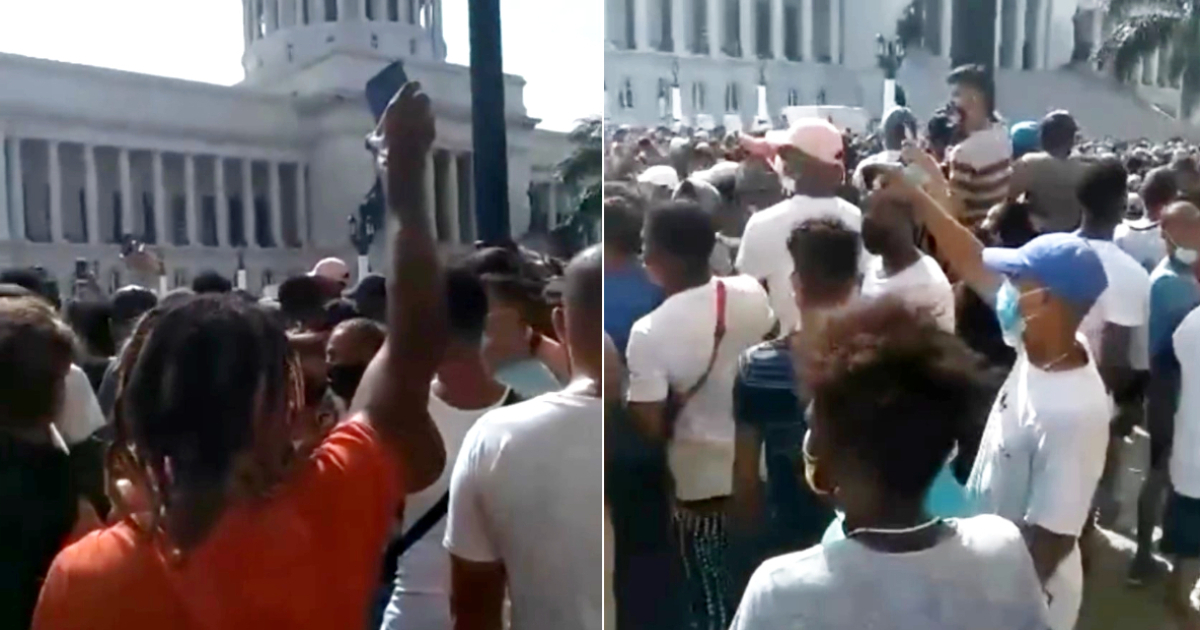
TheNational Assembly of People's Power (ANPP) denied the request for an Amnesty Law that sought the release ofpolitical prisoners of the Cuban regime.
The notification, received byWilber Aguilar Bravo – father of the political prisoner of 11J,Walniel Luis Aguilar Rivera, is dated February 8, 2024. In it, the ANPP acknowledged receipt of the official petition presented on January 19 at the National Capitol.
Application,presented before the Cuban Parliament at the end of January at the initiative of actors of theCuban civil society, had significant support,accumulating 2,314 signatures of support, including 546 from relatives of political prisoners and 80% from permanent residents with the right to vote.
However, the official notification did not specify the specific reasons for the denial, simply stating that the processing was "inadmissible" for not complying with certain legal requirements, without detailing which ones.
“We acknowledge receipt of the letter submitted by you to this Office. Having seen and examined your request, its processing is inadmissible because it does not comply with the requirements of the Law and its file is ordered,” responded the ANPP Population Assistance Office.
The response of the regime's Parliament once again turns its back on broad sectors of Cuban civil society that demand therelease of more than a thousand political prisoners of the regime, including the hundreds of peaceful protesters who participated inthe historic 11J protests in Cuba.
“The signatures represent a feeling, the feeling of freedom of our children unjustly imprisoned, and that feeling is above any law. We will continue to support the request and feelings of the family members. Until freedom,” Aguilar Bravo expressed after the response, according to a press release published in thesocial networks of the activistCarolina Barrero.
At the end of January, Aguilar Bravo delivered to the Cuban authorities the official petition for an Amnesty Law signed by other relatives of those convicted for political reasons. The renowned member of civil society appeared at the ANPP to deliver the document, initially supported by the signature of 34 relatives of political prisoners.
The petition, which is open for signature by all Cuban citizens, is protected by article 61 of the 2019 constitutional text, which recognizes the right of citizens to present petitions to state officials and institutions, who are theoretically obliged to respond to them.
Beyond its legal effectiveness,the petition has a clear political objective: maintain pressure on the Cuban authorities and encourage discussion around the release of hundreds of political prisoners on the Island.
This setback in the amnesty request has not deterred defenders of human rights and democracy in Cuba. Meanwhile, activists promoting the initiative continue to urge the public to support the cause by signing theamnesty petition delivered by family members, in solidarity with those who fight for freedom and justice in Cuba.
What do you think?
SEE COMMENTS (2)Filed in: